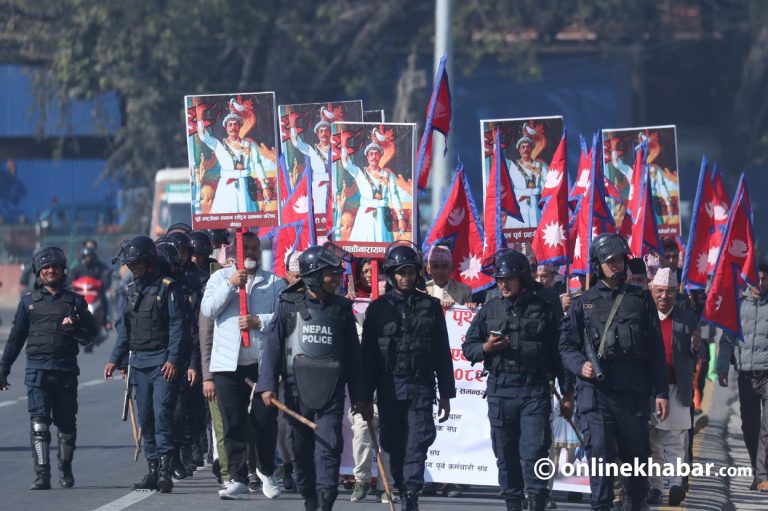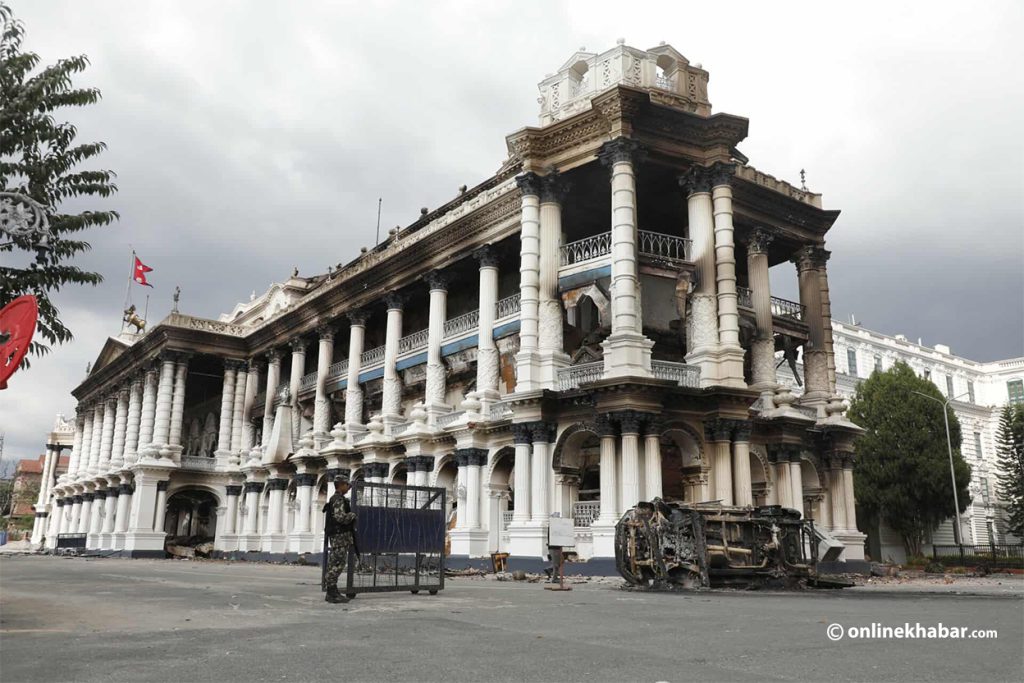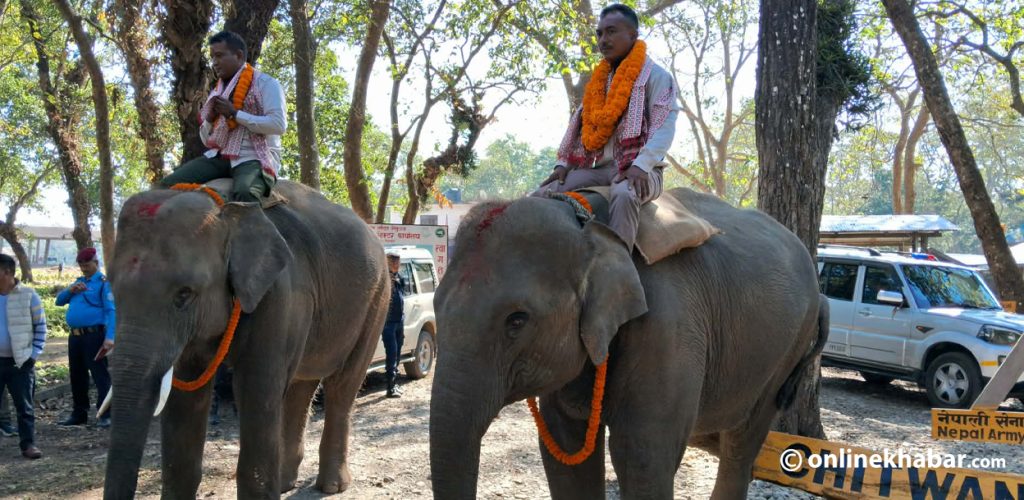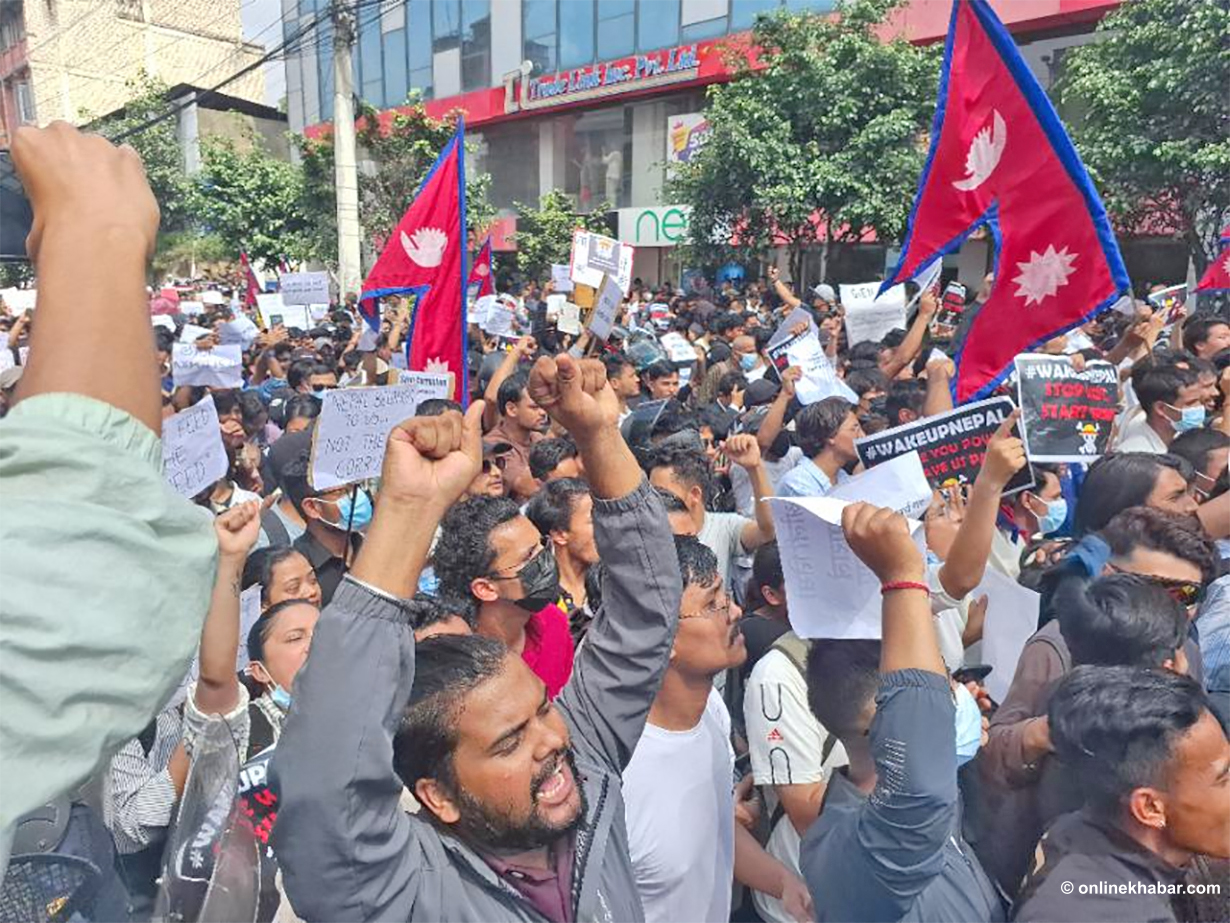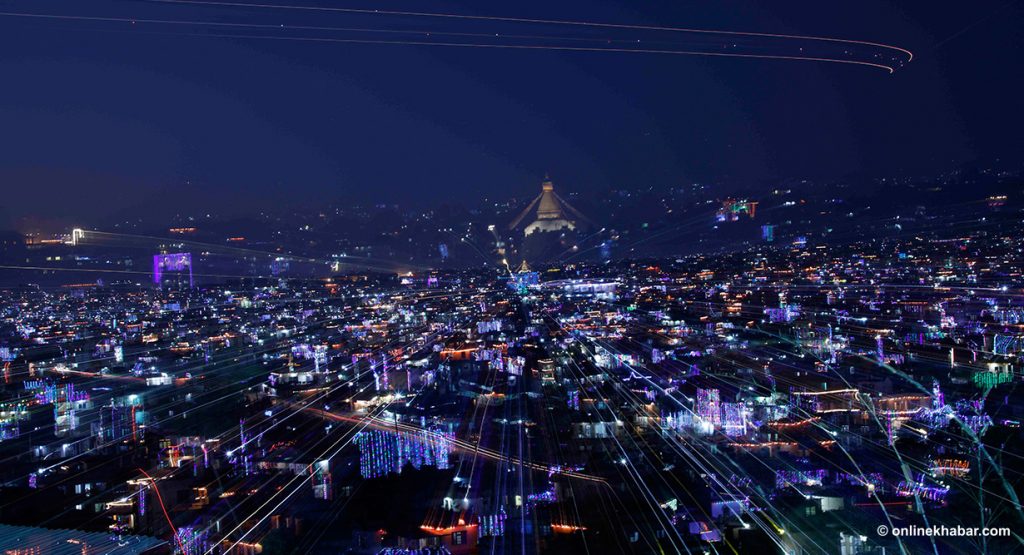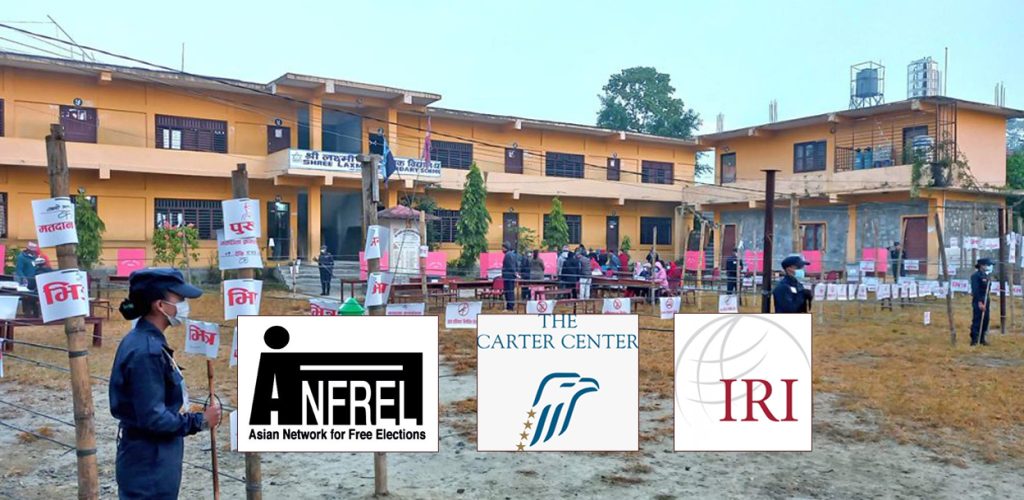
Last week, medical students studying at the Maharajgunj Campus under the Institute of Medicine (IoM) of the Tribhuvan University gathered in front of the Office of the Dean and protested against the hostel administration of the campus.
Under the name of the hostel reform group, these students protested with placards that read statements that the college head tortured them by cutting off electricity and drinking water lines to the hostel should resign. They also padlocked key office rooms.
When the police team came to open the padlock, they stopped them, causing a clash. Some protesting medical students were briefly detained too.
The students say the hostel problem is not new at Nepal’s oldest medical school. “Despite the agreement, the campus administration will not do anything to improve the hostel,” a student was complaining, “The students and administration had done so many agreements before, which remained unimplemented every time.”
Who is at fault?

More than a thousand medical students are studying in various programmes at the IOM’s central campus, also known as Maharajgunj Campus.
The institute has been providing subsidised hostel facilities for students for nearly four decades. The students have to pay only Rs 4,500 per year for staying in the hostel. One has to pay an extra amount for food though.
Whereas there were three blocks of hostels since the early days, two new blocks have been added recently, owing to an increase in the number of medical students there.
Previously, the hostel management committee had allotted Block D and Block E for the female students as only 64 out of 200 female students got space in the hostel before the reservation.
Now, male medical students who were occupying these two blocks are not ready to leave.
But, this is not the only problem. According to the students, more than 250 students are staying in hostels in all the blocks. But, the data of the administration shows only 80 students are staying legally in them. It means the rest are staying without any permission from the administration.
The administration issued a notice calling medical students occupying hostel rooms without permission to leave by January 24. But, the hostel was not been vacated yet, instead, they have started the padlocking and sloganeering.
The blame game

According to the coordinator of the hostel management committee, Dr Rahul Pathak, the students were informed to stay in the hostel only after getting approval from the administration, but they resorted to protests and other disruptive activities.
“Currently, according to the college records, two-thirds of the rooms in the hostel are empty. But when examining the rooms, all the rooms are occupied,” says Dr Pathak, “And, there are cases where the students whom we send to stay as per the list are beaten by the students who were staying in the hostel without permission.”
According to him, apart from the 80 students staying legally, 125 people are on the waiting list for admission.
Meanwhile, about the complaints that there are no water supply and electricity, he says, “Water supply is not connected to Block D and Block E because the campus administration is not operating them as a hostel.”
“It would be wrong to go and live on their own and complain that the management is not good.”
The administration has alleged that medical students have protested under the guidance of sister organisations of political parties.
But, the students question back.
“The buildings here are empty, yet they don’t call for applications to stay here,” Navaraj Devkota, a pharmacy student, says, “The administration has given these rooms to their acquaintances and other favoured people. Even after studying for three to four years, I could not get a room.”
The protesting medical students say that the administration tried removing them even when they came and stayed in the vacant buildings. “In order to evict us, the administration is doing things like cutting off the electricity, giving us mental stress or even making us fail exams,” another protesting student tells OnlineKhabar.
The students in the hostel reform group are in protest with a demand that the college provide the hostel facility to all students, but the administration says it is impossible now.
Another demand of protesting students is that Block D and Block E should be properly managed and if there are not enough rooms in the hostel on campus, it has to be booked elsewhere for the same fee. “A room costs around Rs 7,000 a month to stay outside the hostel. Where can we, students who come from remote areas, pay so much money?” says a student in the protest.
“The campus administration has decided to remove the students living in Block D and Block E and make them homeless. Where will 80 of us go and stay,” a student who does not want to mention his name says, “It is not only the problem of the students, but our movement is against the mismanagement of campus administration.”
According to the protesting medical students, the government has made it mandatory for medical schools to arrange hostels for 75 per cent of the students. Hence they argue that the college administration should fulfil their responsibility towards the students.
But, Shrikrishna Giri, the vice-chairperson of the Medical Education Commission, a regulatory agency, says there is no such mandatory provision for a college to arrange hostels for medical students.
This story was translated from the original Nepali version and edited for clarity and length.






